Cover Story: Director Alan Paul on taking flight with Peter Pan and Wendy
With "Peter Pan and Wendy," Paul helps to reshape a treasured classic and reimagines it for a new generation
[masterslider id=”39″]
Recently Alan Paul put in a call to Molly Smith, the artistic director of Arena Stage. “Molly, this is a big new work,” he said. “Come to a preview and give me all your notes.”
The big new work in question was a fresh adaptation of Peter Pan. Paul worked with in-demand playwright Lauren Gunderson to adapt the classic for today’s modern sensibilities and cultural sensitivities, and the play, now running at The Shakespeare Theatre’s Harman Hall, even goes by a modified title that speaks volumes about how the tale has been altered.
Peter Pan and Wendy is about gender roles, stereotypes, and dynamics, with the character of Wendy Darling given equal billing with the boy from Neverland who famously never wants to grow up. Wendy is portrayed as sweet and smart, a precocious young girl well ahead of her time at the turn of the 20th century. “Wendy can’t understand in this version why there is a limit on her,” Paul says. “She begins the play not ever wanting to grow up, and then she learns when she gets to Neverland that she should.”
Even Peter becomes a more compassionate and thoughtful character — one who even shows signs of growing up — in this version of the story. Here, Neverland is a fantasyland that the Lost Boys stole and colonized from the indigneous population, represented by Tiger Lily, who becomes a charismatic champion of her people that no previous version of the tale so much as hinted at.

Paul, the longtime associate director at the Shakespeare Theatre Company, has become a regular presence as a director for hire at theaters around town — and, increasingly, the country. As it happens, Arena Stage’s Smith gave Paul, a 35-year-old native of Potomac, Maryland, his first professional job after graduating with a theater degree from Northwestern University. That was back in 2006, when she hired him to assist in a production of Cabaret. “Molly’s been a mentor to me,” he says. “I trust Molly more than anyone. We’re very close in that way, where it’s like, I want the truth from her. And she gave me a fucking great set of notes [for Peter Pan and Wendy].”
So many things about Peter Pan and Wendy are different than what you expect, including its placement at The Shakespeare. Paul has helmed many of the big classic musical productions that have become a Shakespeare Theatre staple over the past decade, yet as universally appealing as those works may have been — including A Funny Thing Happened on the Way to the Forum and Kiss Me, Kate — none could attract the hordes of children and families that Peter Pan and Wendy has managed. It’s a shift that is part of a new, still-gestating “family-friendly initiative” from the company and its recently appointed artistic director Simon Godwin, who previously led London’s prestigious Royal National Theatre. Godwin succeeded Michael Kahn, the towering American theater giant who founded the D.C. company and originally hired Paul more than a decade ago.
Paul has been inspired thus far by the energy and “big ideas” generated by Godwin, and is also encouraged by their work dynamic. “I believe in what he’s doing,” he says. “He and I have a great working relationship. He has been really supportive of me, and also just treats me with a lot of respect.”

METRO WEEKLY: Let’s start with what inspired the choice of Peter Pan and this new spin on the classic?
ALAN PAUL: Our artistic director Simon Godwin and I talked about a few titles, and Peter Pan had the most appeal to me because I grew up as a young boy loving Peter Pan — my mother was raised on the Mary Martin musical so she showed it to me. I knew all the songs when I was twelve. At summer camp I played Captain Hook, and forgot all my lines onstage at the dress rehearsal — which I think is probably why I’m a director and not an actor.
I thought a lot about what it meant to do it in 2019, and the world we’re living in. My favorite line from the show that Lauren has written is, “When the hero changes, the story changes. And when the story changes, so does the future.” I thought, “This has to be a story from a female perspective,” so I only interviewed female playwrights. I had heard of Lauren, and I had seen The Book of Will, which she wrote. She has two young boys that are three and five and I felt she would have a really interesting perspective on both the adult part of the play and also on growing up. That was a year ago in November. We did this very quickly.
MW: That’s a really quick turnaround by theater standards.
PAUL: Oh my God, it was so fast. Simon and I had the conversation a year ago in October about doing the play. I read every single version that exists out there, from the musical to the original J.M. Barrie that began in 1904 as a play. Then, of course, it’s been adapted every which way. There was an adaptation a friend of mine, Jonathan Munby, did for the Royal Shakespeare Company called Wendy and Peter. There was a production by David Greig at the National Theatre of Scotland. I liked a lot of them, but I eventually came back to the idea that, “We’re the Shakespeare Theatre Company. We’re a leader in the field. If we want to do a big new Peter Pan, we should do it.” Lauren and I began thinking that we would use some of the original J.M. Barrie play. When we really began to work in February, she was just like, “Let’s go all in.” And we did.
MW: Did you get permission to do that, or is the work in the public domain?
PAUL: The novel is from 1911 and is in the public domain in America. But the play is from 1904 and it is under a special copyright, one of the only things from that time that is still under copyright. The proceeds of the play go to the Great Ormond Street Hospital, which is a children’s hospital in London. So we have an agreement with them, and royalties go to the hospital. They have been a part of the process of developing and approving this. We worked closely with them, and then we had freedom to do our own thing. The stipulations from the hospital were that it had to be true to the spirit of J.M. Barrie. We couldn’t do a Peter Pan that made Peter the villain. And we had to set it in Edwardian England. They didn’t want to redo it in technoland, which was a thought at one point. Lauren and I thought we would do an all-electronic Neverland.
MW: That would be fun.
PAUL: It would be fun, but it wasn’t the mandate. You want to do right by them, because it’s a children’s hospital. That was stipulated by J.M. Barrie. He believed in the hospital, and so that was his wish. He had such a connection to young people.
MW: This new adaptation differs from the original tale most significantly in its approach to gender, by elevating the female characters and making gender dynamics a key theme throughout. And then there’s your choice of a boy to play Peter Pan.
PAUL: Yeah, even in the original J.M. Barrie, a woman plays Peter. All these great actresses played it. That was the tradition. I think they were trying to capture something youthful [with] an adult who could not appear as a man. It also reminds me of opera and operetta of the period, where there were women in pants roles.
As we worked on this, though, it became clear to Lauren and I that it was a story about gender. It was a story partly about how we assign gender roles and expectations to young people, and then it became a love story between Peter and Wendy, so I thought it had to be a man playing Peter.
MW: Did you think a same-sex twist would not have worked?
PAUL: It certainly could. And maybe someone in the future will do it, or do a trans Peter. That’s the beauty of the story, it could be anything.
MW: Right from the start we’re introduced to Wendy the scientist, whose role model is Marie Curie.
PAUL: Since it was written [and remains set] in 1904, I said to Lauren, “I want the first scene to be robust, and I want the conversations going on in the Darling household to be connected to stuff happening in 1904.” At first I thought maybe they’d be talking about colonialism, because that was the big age of Britain and discovery. I thought a lot about the suffragette movement — it was right around that time in England. Lauren was already busy writing her Off Broadway play, The Half-Life of Marie Curie, so we started thinking about Wendy as a young scientist, and the conflict of the first scene being that Wendy is a scientist, and believes in empirical truths and everything that is tangible and real. She has to make sense of Tinkerbell and then this guy who walks in and believes in magic, and she has to take a leap of faith. It was about the confluence and the tension between science and imagination, belief, all those things, and their two points of view and how they combust. How they’re excited by the other thing, because they don’t know the other thing.
Tinkerbell in the original is only a ball of light. I thought, “Well, wouldn’t it be incredible if we made her a woman, or a girl?” Then we felt we had such an opportunity for Tiger Lily to reclaim a story that, unfortunately and unconsciously, was a huge propagator of racism against indigenous and native people. I don’t think that was J. M. Barrie’s intent — he was living not in America, but in England. I always think it’s sort of like Shakespeare writing The Merchant of Venice — he didn’t know anyone Jewish. But I think we had an opportunity to flip the script on that, and to use it as a way to empower that character. Some adaptations have not put her in it — a lot of people silence it by taking it out, because the original is so problematic. I just think when you have something problematic in a revival, you have to address it. You’ve got to deal with it consciously.
And we spoke to so many indigenous people that said it’s so important to have that voice in the story, and it’s so important that it’s a voice that has humor in it. So that’s what we tried to do. Then it sort of became a story of what people think about young men and young women, and how to change the perception. Because Wendy comes up against a lot of what people thought a young woman was supposed to be in 1904 — and we’re still living in that world. We’re still living in a world where we assign what a boy should be, too.
I wanted three very different women in the play. In Neverland, I wanted Wendy, the scientist who’s earnest. I wanted Tiger Lily, who is funny and wry and an activist. Then I thought Tinkerbell had to be the other one, and she has to be the character who learns how to get along with other girls. A total Mean Girls experience.

MW: In many ways, Tinkerbell comes across as a familiar gay stereotype — that of, for lack of a better term, a “fag hag.”
PAUL: You said it, you said it. But, yeah. I wanted this to be splashy and a bit gay. That was my dream for it. It wasn’t something I started off thinking would be important to me, but I have these two great actors, Derek Smith and Tom Story, playing Hook and Smee. I said at the beginning, I feel like this should be a little bit of a gay love story. Unrequited. And then of course Tom Story being Tom Story, he just made it really fun, that subplot, and [seeing] how much we could suffuse it with Smee’s just total blind love and adoration for Hook. What kind of a sensual experience could we make of Smee putting on Captain Hook’s hook and screwing it on? At the beginning, we were just doing it in rehearsal, the three of us. That ended up being a hit in the rehearsal room and we were like, “I think we have to do that in the show.” And it just kept building and building and building and building and building, until all these unrequited things happen on the pirate ship at the end.
Another thing that appealed to me so much with the play: it is a big metaphysical exploration of the nature of time. You’ve got Peter Pan, who never wants to grow up and wants to stop time and just be a boy forever. On the other end of the spectrum, you have Captain Hook, who is getting older, and the crocodile has swallowed not only his hand but a clock. And he’s afraid of the crocodile, but he’s really afraid that the clock is going to wind down, and then that croc is going to eat him in silence, when he can’t expect it. So for Captain Hook, there’s mortality around every corner — age and also the crocodile. I thought, how interesting. At either extreme, when you try to mess with time, you really mess up your life.
The play for me, on a more poetic level, is [conveying that] the only way to live is to be in the moment. If you try to be ahead of it or if you get stuck — if you’re not in the moment, you’re not living your life. I think that’s one of the lessons Peter Pan learns. Of course the other big lesson he learns is that you have to learn to care about other people, and that’s what growing up means. And to not be selfish. I think the big revelation of our production is that that character who had for a long time never admitted that he could or would change is the character in the play that has the biggest change.

MW: This is certainly not traditional Shakespeare Theatre fare. And yet, as the first in a new family-friendly initiative, it seems to be a harbinger of what’s to come. Can you give us some insight into the initiative and future plans?
PAUL: Simon is committed to doing a few years of programming that can be family-related. We haven’t decided yet what the next pieces are. It’s been interesting to see excitement from people who might not normally come to our theater. There’s a ton of new faces, and I think we have such a responsibility to get the next generation in here. It’s not that the 10-year-old coming to this is going to buy a ticket next year, but we have to make theatergoers for the future. I was hooked at an early age, and we’ve got to do our part. I think he feels that, and that’s been one of the things for this one I was most excited about being a part of.
MW: Isn’t the annual Shakespeare Free For All technically in the same audience-building category?
PAUL: Yes, but that has tended to be something that a family audience might not show up to. Also, if you’re a family and you come to this with your kids and you have an amazing experience, and you see whatever we’re going to do for the free Shakespeare in the summer, you’re even more likely to come and show up for that.

MW: You got hooked on theater at an early age. Was that because of your parents?
PAUL: I was 100-percent encouraged. My mother, when she was younger, wanted to be a dancer and a performer. We would go on trips, she and I, when I was 10, 11, 12, all the way until adulthood. We’d go see three or four Broadway shows. She took me to the Kennedy Center. There was once talk of maybe I should have a law degree as a backup, and then that never happened. I think they’re very proud of the fact that I’m in the theater, and they love going to shows.
They see everything. My parents saw The Pajama Game seven or eight times when I did it at Arena. They saw Cabaret six or seven times just now at the Olney Theatre Center. They’re coming back to Peter Pan and Wendy. They’re your proud Jewish parents who want to be there, they want all their friends to see it. My mother practically had a vendetta out for any friend that didn’t see Cabaret earlier in the year. Everyone showed up, so there were no problems, there was no unfriending of people. But you know, that was important.
MW: Do your parents still live in Potomac?
PAUL: Yes, they still live there. Two of my three siblings are in the area. I have two older siblings and a twin sister. She is technically one minute younger than me. We’re fraternal.
MW: When did you come out?
PAUL: Oh, I was very young. I was 14 or 15.
MW: How did your family respond?
PAUL: They were great about it. I don’t think it was a big surprise. And it was never a problem. I was very open for most of high school. Had it been a few years earlier it probably would have been [a problem]. But at my high school, Churchill High School, I was very popular. I was even in the prom court.
MW: Did you take a guy to prom?
PAUL: No, no I didn’t — not because I couldn’t.
MW: Did you take a girl?
PAUL: Yeah. But it wasn’t a thing in high school. There was no problem with it. I wasn’t really teased. And I was the star of the musicals. Everyone wanted to be in this thing called “Blast from the Past,” which is the big rock revue that is done every year at Churchill High School. They put so much money into it that it made you popular in school. So I glided by. My senior year, because I play piano, I sang Billy Joel’s “New York State of Mind.” I graduated in the spring of 2002, so as seniors we went through September 11th. You asked me earlier if I’m ever recognized when out on the street. I’m not, but I am recognized by parents of Churchill peers of mine. Even now, people come up to me and they remember me singing “New York State of Mind,” because it was so emotional that year.

MW: Has being a twin impacted your life or career?
PAUL: My sister and I, we’re still very close. We had our own language growing up, which my father claims to understand, but he doesn’t. And we still think the same things are funny that no one else thinks are funny.
It gave me insight — a lot of Shakespeare’s comedies involve twins. A lot of people don’t know how to direct those, because they don’t have any experience of being a twin or being around twins and what that is. Directing The Comedy of Errors is different if you are a twin, because you understand what that is, and you understand the ending when the twins come together and what that means. Same thing is true for Twelfth Night. Shakespeare had twin children, one of them died. I think that’s why there’s so much about twins and family in Shakespeare.
MW: How are things in your personal life? Will you be getting married anytime soon?
PAUL: I’m not getting married, no. But I am in a long-term relationship with an architect, Christian Zapatka.
MW: Do you live together?
PAUL: We don’t live together. I lead the artist’s life, which is, I need to be solitary sometimes. I have learned — this is so basic, and I probably will get it wrong — but the difference between an introvert and an extrovert is that an extrovert is charged [by social interaction]. I have to be alone for a lot of time or else I am so cranky. I spend my days being a fake extrovert, because I’ve got to be in charge. In Peter Pan, there are 66 people on the crew — actors and everything. You’ve got to be in charge, and the truth is I would rather be silent. I’m not uncomfortable being in charge, I’m not uncomfortable being a trained monkey and performing and making people laugh and doing all that. But my natural state is not that. And I get really tired if I have to do a lot of fundraising and directing. I just want to go home and be quiet.
MW: Do you still practice Judaism?
PAUL: No. I would say I’m culturally Jewish. I don’t believe in anything. And I enjoy eating [non-Kosher food]. And I love shellfish. You’ll find me often at the bar at the Prime Rib because they have the best oysters in town. You wouldn’t think it. I love red meat, but I have to limit my red meat intake.
MW: Because of cholesterol?
PAUL: Yeah. But anything that qualifies as a steakhouse is where I will spend my money. From the CUT, which I can’t wait until it reopens in Georgetown, to Bourbon Steak, to the Prime Rib, to the Palm. I’m like a 90-year-old man. I’m oddly meat-and potatoes-oriented. Just no potatoes, because I’m on a low-carb diet.
MW: And also because you’re gay.
PAUL: Exactly, exactly. No carbs here. Only on special occasions, and only a dry martini. Not going to waste my sugar on a glass of red wine.
MW: A dry martini is your go-to drink?
PAUL: Ketel One martini, up with a twist, very dry. And a rare steak. That’s what I want.
MW: Would you like to have children in the future?
PAUL: Maybe. Maybe. I mean, the great benefit of being a gay man is that however I choose to have children, 35 doesn’t mean — there’s less of a time limit on it. And everyone’s having kids later these days, too, and so I wouldn’t be surprised.
MW: Especially in the arts, you sometimes hear people who are childless refer to work projects or productions as their babies, to varying degrees.
PAUL: I think you get in danger if you make this work try to replace a personal life. Because then you’re dependent on this being everything, and it isn’t. You can’t sit at home and be fueled by your reviews, good or bad. They’ve got to just be part of your life, I think.

MW: Looking over the list of your announced projects next year, two stand out: Spring Awakening, opening in January at Round House Theatre in Bethesda, and On the Town with the National Symphony this summer.
PAUL: I’m excited to do Spring Awakening for a couple of reasons. I’ve always wanted to work at Round House, having grown up in Potomac. And I love Ryan Rilette, the artistic director. He’s made an amazing shift in that theater. I’m not often asked to do contemporary and rock pieces, and it’s sort of the total opposite of what I’ve just embarked on. I love the musical, and it’s intimate and emotional. And my real favorite restaurant is around the corner from where Round House is, Woodmont Grill. If you go to see the show, go to Woodmont Grill first. If you go to the opening, I’ll probably be there before it. Any Sunday night, I’m probably there with my entire family. It used to be Houston’s, and my friends and I still refer to it as Houston’s.
In the early summer, I’m doing my fourth collaboration with the National Symphony Orchestra, with On the Town. We’re doing a version they did in London that has been kind of redone for symphony. I can’t reveal the cast yet, but we’ve got some incredible people who have already agreed to be in it. I’ve loved the conductor Steven Reineke, the director of the Pops. He’s incredible. But I’ve also had the opportunity to work there with a lot of great conductors on more classical stuff, including Gianandrea Noseda, who is their current music director. For me, this connection to classical stuff is very important. I feel very at home at the symphony.
MW: What do you like to do in your rare moments of downtime?
PAUL: I don’t know what to do [in those times]. It takes me a while to come off the edge. I love running and I love TV. I just binged season three of both The Crown and The Marvelous Mrs. Maisel. I love Netflix shows, I love food-related shows. I think the greatest sadness of the last two years was when Anthony Bourdain killed himself. I love this series called Chef’s Table on Netflix. It’s addictive. And I love real-life crime drama stuff — documentaries [about] war criminals on the run, sent to justice 70 years later. You know, nonfiction-y stuff.
MW: Does it help you with your work, or inspire ideas? Or do you try to keep it separate and disassociate?
PAUL: Mostly disassociate. Mostly just turn this thing off [taps his head] with a martini.
Peter Pan and Wendy runs through Jan. 12 at The Shakespeare Theatre Company’s Harman Hall, 610 F St. NW. Call 202-547-1122 or visit www.shakespearetheatre.org.
Support Metro Weekly’s Journalism
These are challenging times for news organizations. And yet it’s crucial we stay active and provide vital resources and information to both our local readers and the world. So won’t you please take a moment and consider supporting Metro Weekly with a membership? For as little as $5 a month, you can help ensure Metro Weekly magazine and MetroWeekly.com remain free, viable resources as we provide the best, most diverse, culturally-resonant LGBTQ coverage in both the D.C. region and around the world. Memberships come with exclusive perks and discounts, your own personal digital delivery of each week’s magazine (and an archive), access to our Member's Lounge when it launches this fall, and exclusive members-only items like Metro Weekly Membership Mugs and Tote Bags! Check out all our membership levels here and please join us today!







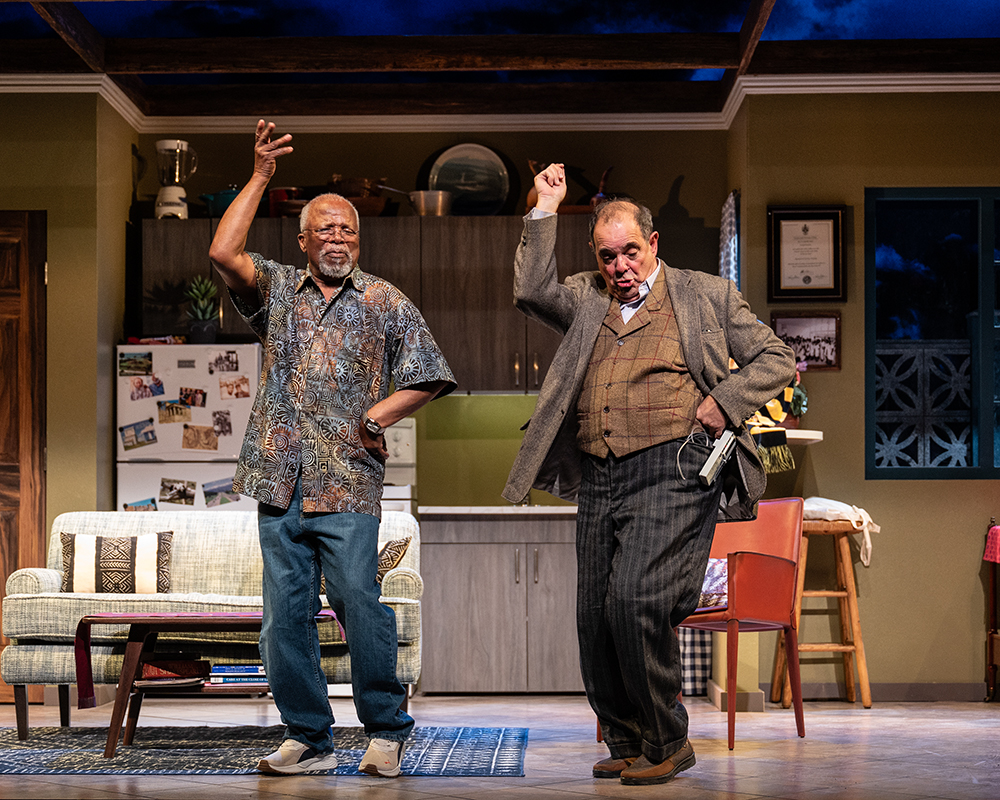
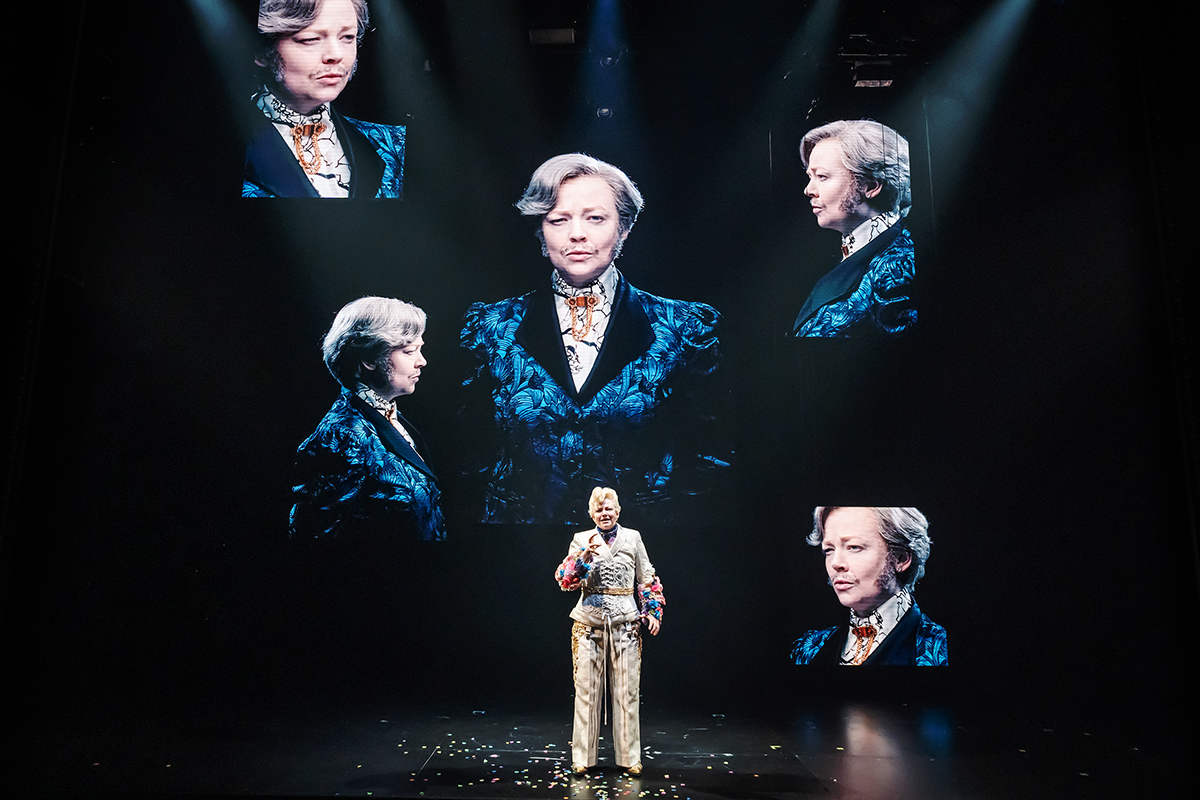













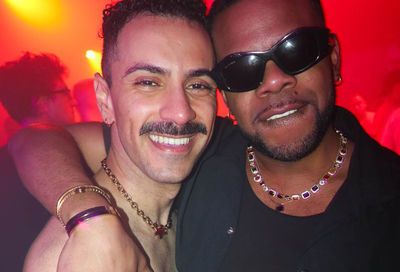
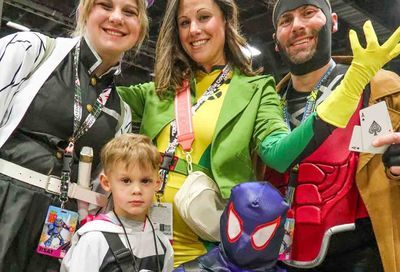
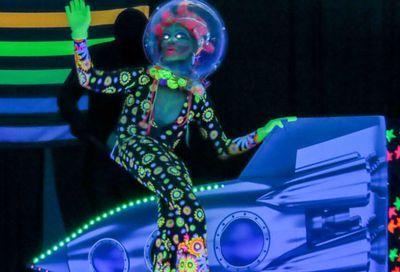
You must be logged in to post a comment.